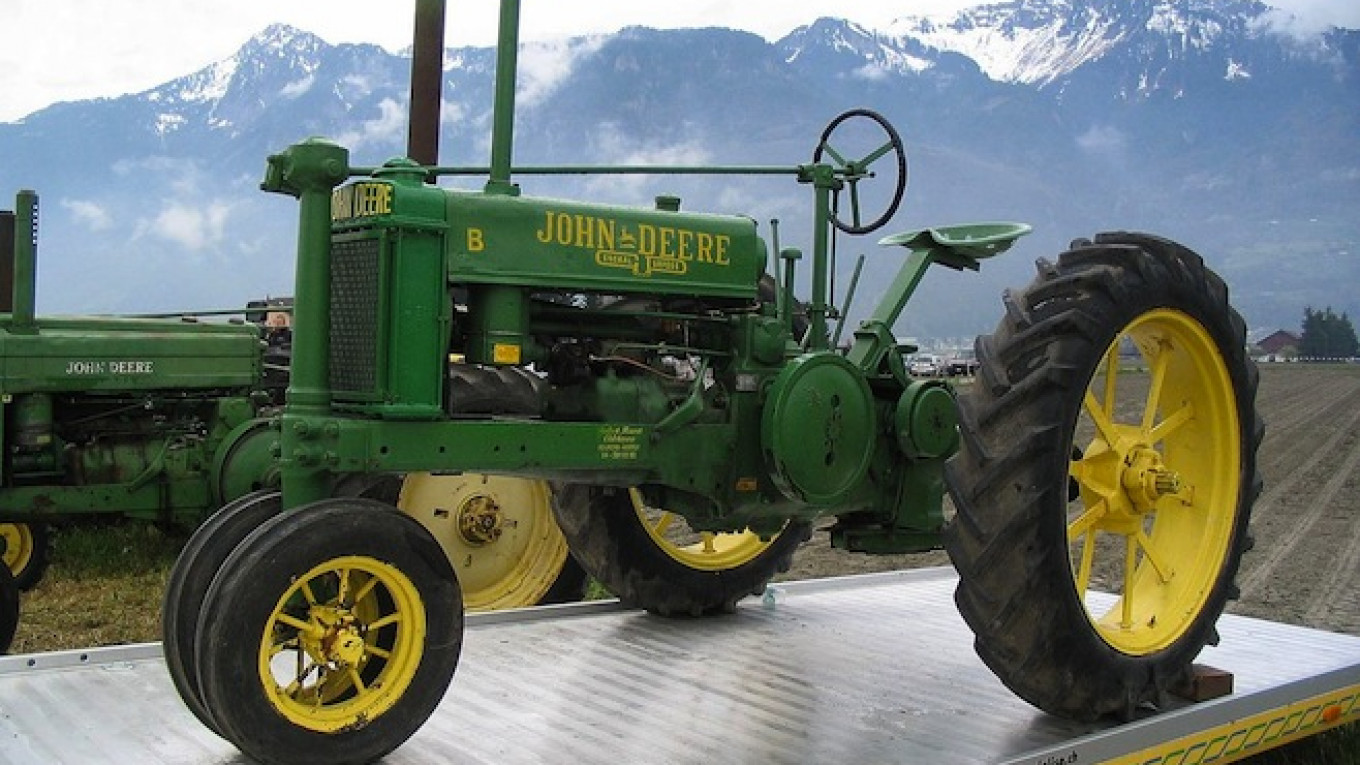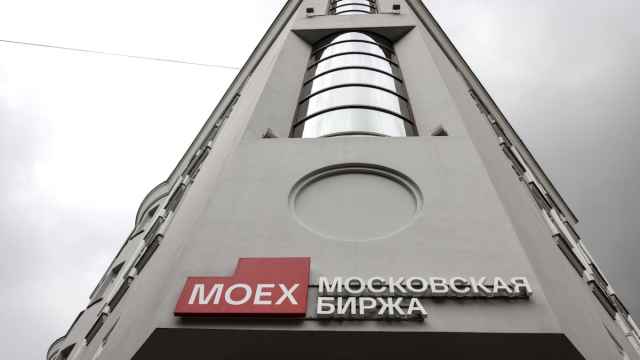Russian President Vladimir Putin's announcement on Wednesday that he plans to slap a one-year import ban on agricultural products from countries that have imposed sanctions on Russia is unwelcome news to U.S.-based makers of farm equipment.
But the move is unlikely to have a big impact on the near-term financial performance of companies like Deere and Agco because Russia accounts for a small part of their sales.
Even so, both companies expressed concern on Wednesday about the escalating trade fight triggered by Russia's support of Ukrainian separatists.
"We are closely monitoring the situation in Russia to determine how events will affect John Deere," Deere spokesman Ken Golden said in a statement.
"We have previously stated that Deere supports solutions that can be achieved without violence and in accord with international agreements," he said.
On Wednesday, Putin ordered his government to come up with a list of agricultural goods to be banned for import to Russia for a year to retaliate against economic sanctions imposed on Moscow by the United States and the European Union.
Both Deere and Agco expressed concern that the list could include farm equipment, as well as food items.
Russia is not a big importer of U.S.-made tractors, harvesters and other agricultural implements, according to data from the U.S. Department of Commerce's International Trade Administration.
In 2013, Russian farmers purchased just $130 million of American-made agricultural implements, accounting for less than 2 percent of U.S. exports of farm equipment.
One reason is that, despite Russia's joining of the World Trade Organization several years back, the country has imposed an array of rules on the importation of agricultural components and whole goods, with tariffs ranging from 5 percent to 27.5 percent. In addition, there is a quota on harvester imports.
Ann Duignan, an analyst at JP Morgan, said those barriers caused imports to "decline significantly" in recent years.
"So it's not as important to anybody today as it might have been five years ago," she said.
Russia lags behind much of the rest of the developed world in farm mechanization and has the potential to become a big market for farm equipment makers. That is a positive prospect for Agco and others, which are facing a widely expected decline in sales to the rest of the world in the next few years as record crops push farm incomes lower and discourage investment in new equipment in North and South America and Western Europe.
"That whole area – Russia and the former Soviet union — accounted for less than $100 million in sales for us last year," Martin Richenhagen, the chairman, chief executive and president of Georgia-based Agco, told Reuters.
"So it's really not that important to us. But the bad thing is, we were hoping that area would compensate for weaker business we are facing in other key markets."
See also:
A Message from The Moscow Times:
Dear readers,
We are facing unprecedented challenges. Russia's Prosecutor General's Office has designated The Moscow Times as an "undesirable" organization, criminalizing our work and putting our staff at risk of prosecution. This follows our earlier unjust labeling as a "foreign agent."
These actions are direct attempts to silence independent journalism in Russia. The authorities claim our work "discredits the decisions of the Russian leadership." We see things differently: we strive to provide accurate, unbiased reporting on Russia.
We, the journalists of The Moscow Times, refuse to be silenced. But to continue our work, we need your help.
Your support, no matter how small, makes a world of difference. If you can, please support us monthly starting from just $2. It's quick to set up, and every contribution makes a significant impact.
By supporting The Moscow Times, you're defending open, independent journalism in the face of repression. Thank you for standing with us.
Remind me later.






